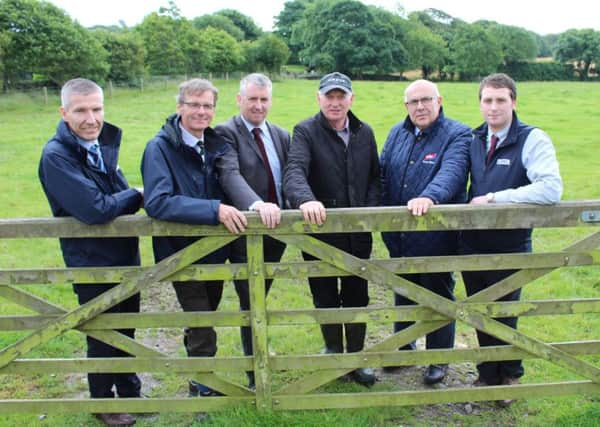China could say '˜yes' to beef from province in October


“We are expecting a visit by high ranking officials from China in October,” he said.
“And this may well be the forerunner of a decision to formally relax the ban. If this does happen, local meat plants will have the opportunity to apply for specific export accreditation from the Chinese authorities. If all goes according to plan, the first exports of local beef could be heading to China in 2021.”
Advertisement
Hide AdAdvertisement
Hide AdMr Donnelly made these comments while on a visit to the Downpatrick beef farm of Edward Carson.
He was accompanied by representatives from the Livestock and Meat Commission (LMC) and ABP Food Group’s Supply Chain Manager Liam McCarthy.
LMC chairman Gerard McGivern said that the Farm Quality Assurance Scheme (FQAS) represents the all-important framework around which any future beef trade deals with countries like China will be secured.
“It has carried out this role successfully for the past 25 years,” he added.
Advertisement
Hide AdAdvertisement
Hide Ad“The scheme ticks every box: traceability, animal welfare and the highest environmental standards.
“The scheme has succeeded in giving consumers total confidence in the quality, traceability and heritage of the beef and lamb they are buying.
“And it continues to resonate at farm level. The number of producers participating in the scheme grows with every week that passes.”
Liam McCarthy agreed.
He said: “The UK operates the most sophisticated beef market in the world. And it has been the successful implementation of FQAS that has allowed local meat plants to do business with many of the British multiples.
Advertisement
Hide AdAdvertisement
Hide Ad“And FQAS continues to evolve. Recent years have seen the feed trade, the marts and the transport sector become fully compliant with the scheme.”
LMC chief executive Ian Stevenson said that FQAS certification is delivering a bonus of between £100 and £150 per accredited animal, adding: “At an industry level the biggest benefit delivered by FQAS has been its role in allowing local redmeat processors secure new export markets. And this continues to be the case.
“Following its launch in 1992, FQAS was a key driver in delivering market access throughout Europe for Northern Irish redmeat. This was particularly highlighted by the success of local processors in securing high value supply contracts with Dutch supermarkets.”
Mr Stevenson believes that FQAS will play an equally important role moving forward.
Advertisement
Hide AdAdvertisement
Hide Ad“Today, it represents a pivotal assurance scheme for buyers in those export markets within which we are currently active. Finding additional export markets for Northern Ireland’s beef and lamb output will be a fundamental requirement post-Brexit. And, again, FQAS will be key in making this happen.”
Edward Carson confirmed that FQAS continues to deliver for livestock farmers in Northern Ireland.
“It has managed to give consumers reassurance, where the heritage of the beef and lamb they are eating is concerned,” he said.
“And this challenge will not diminish, moving forward. Many non-governmental organisations and associated lobby groups have an anti-meat agenda at the present time. And it’s up to all of the stakeholder groups within our redmeat sector to counter these claims in an equally effective and energetic manner.”